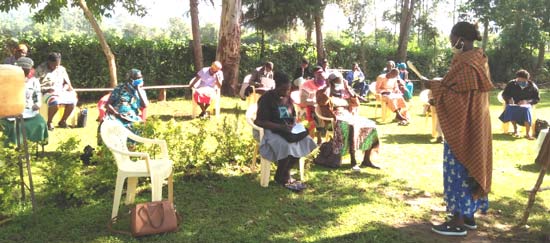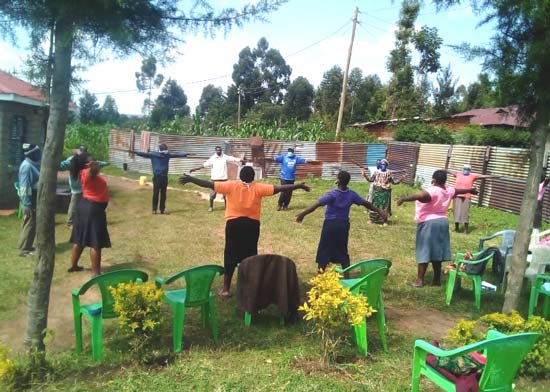
The ongoing Covid-19 pandemic has put unprecedented strain on social and economic life, with adverse effects on food security as one of the most worrisome fallout. It has put unprecedented strain on access to critical agricultural inputs, movement of man and materials, availability of production and harvesting manpower, access to markets and other necessary services. In spite of the resulting physical restrictions and health warnings, Agricultural Extension and Advisory Service (EAS) can still contribute significantly to response efforts to ameliorate the effects, especially on farming communities.
Implications for EAS:
The goals of EAS can be summed up as securing enhanced and sustainable output through safe and profitable means to ensure optimal contribution to livelihood and standard of living of people in the society at all times, key aspects of which should be adoptable at times of socioe conomic or natural disruptions, at least to uphold the farming community.
conomic or natural disruptions, at least to uphold the farming community.
Considering the virulence and transmission pattern of Covid-19, coupled with the various restrictions, it exemplifies an uncharted response territory for many disciplines, especially EAS
The avian influenza outbreak a few decades ago, witnessed EAS playing significant roles of helping to contain the spread, minimizing human and material losses through infection detection and reporting, creative dissemination of essential information on best practices to producers and the general public, in as well as in the re-stocking of affected poultry businesses. These should be replicated now.
Recommended EAS services during COVID-19:
EAS should now use more of virtual group delivery and reception, communication and feedback techniques. Electronic media (radio, television, the ubiquitous handsets, megaphone) and other virtual cum digital tools of mass reach and timeliness, must be fully and creatively and persistently utilized using mostly local languages, to help build desirable individual and group resilience and action.
- Text messages (updates and feedbacks)
- Radio jingles/magazines/ talks from influential people
- Television jingles/short illustrations/drama sketches
- Neighbourhood crier on megaphone
- Posters (reminders and illustrations)
- Contact networks and group leaders.
- Latest information on pandemic
- Local, neighbourhood and national Incidence reports, updates and alerts.
- Government guidelines /regulations/assistance.
- Sources of palliatives
- Right methods of doing things
- Survival/adaptation tips – nutrition, health, stress/conflict resolution and, security.
- Engaging the family/households during lockdown on technical messages for short term commodity production in the back yards (especially vegetables)
- Input supplies/access/ commodity related technical messages and linkages
- Important contacts /Helplines within and beyond the community.
- Establish contact with other EAS operatives and bodies with similar objectives to engender a coordinated response.
- Using its established contacts and networks among the farming population to,
- Collect information on infection, contact tracing and spread for despatch to appropriate agencies.
- Gather through the same networks, the challenges and apprehensions of farming communities and forward to appropriate quarters for action.
- Make available accurate, timely and digestible information of concern about relevant government measures, palliative and care.
- Explain and constantly reinforce to them the advantages of preventive measures such as, personal hygiene, use of face masks, physical distancing and so on.
- Offer resolution support on conflicts.
- Provide information on access to inputs, materials, markets or health and transportation services within their environment.
- Keep hope of normalcy alive.
Lessons for EAS:.
The Covid-19 experience presents a learning curve for all. It is a time to look inwards for effective ways of adapting to new realities; a period that calls for discerning and comprehending the purview of EAS, a juncture to critically assess our often adopted delivery techniques, so as to re-tune training contents and modules, upscale resources, as well as appreciate indispensable working interaction with other disciplines that impact human lives and wellbeing.
With barely technically educated smallholder farmers constituting the majority of our clientele in the developing world, EAS must expand its horizon, be more holistic and people focused in its relationship with farming families/households, making the extension officer an integral member of the community. This reliance will range beyond traditional food production, preservation and marketing guida nce, to hitherto less stressed social, economic, health and education issues.
nce, to hitherto less stressed social, economic, health and education issues.
The major consequences of this is the need for broader capacity building -the training, the contents and, effective mode of delivery and reception, for officials and to farmers for both to be able to respond and adapt in unique situations.
Take away:
Let’s keep EAS wheels turning even now.
